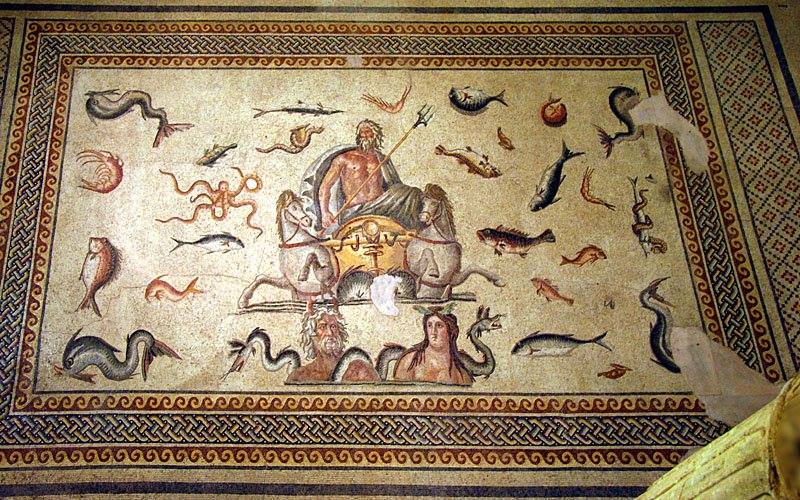One word for the moral repugnance of traitorous acts is the adjective foedus:
foedus m (feminine foeda, neuter foedum); first/second declension (physically) filthy, foul, disgusting, loathsome, ugly, unseemly, detestable, abominable, horrible (mentally) disgraceful, vile, obscene, base, dishonorable, shameful, infamous, foul
In the tale of Scylla and Nisus, not all the arma of Crete, but rather one young girl's amor brought down her father's city. Look for parallels as the book moves on to the tales of Minos, Daedalus, and Meleager. What do the various unexpected deaths have to tell us about vulnerability?
 |
| Aetolia and Achelous |
We'll be hearing about the nymphs who forgot him:
At the mouth of the Achelous River lie the Echinades Islands. [They] were once five nymphs. Unfortunately for them, they forgot to honor Achelous in their festivities, and the god was so angry about this slight that he turned them into the islands.
 |
| Achelous |

No comments:
Post a Comment